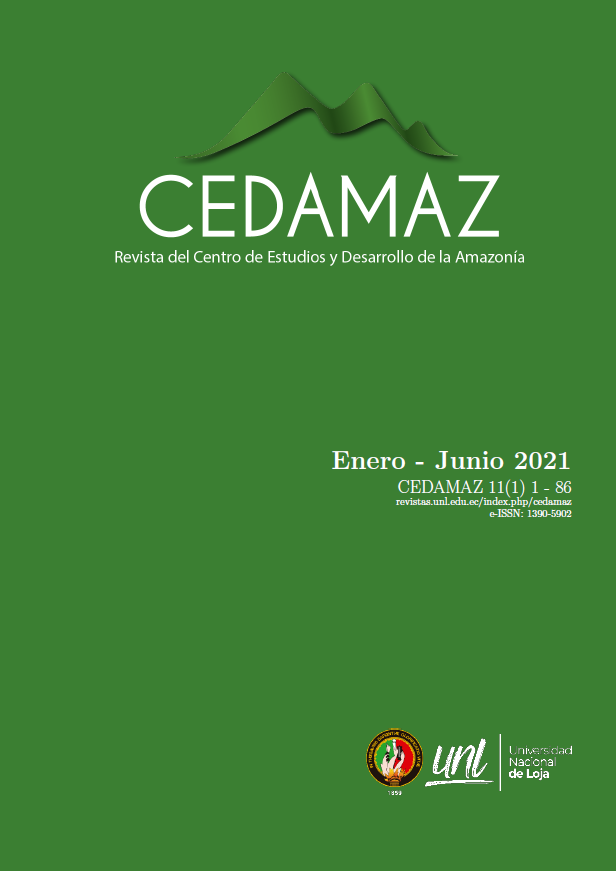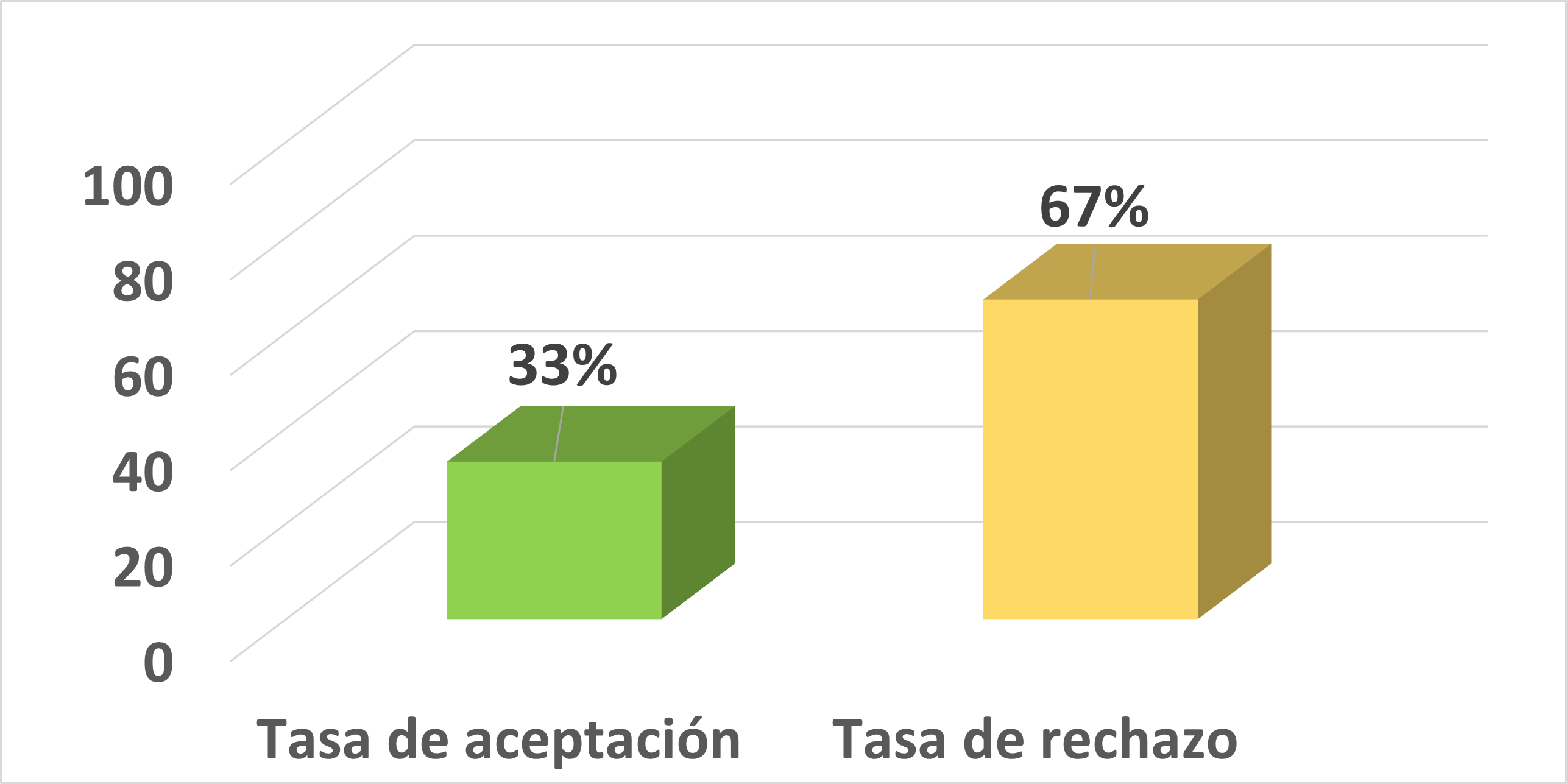Opinion analysis of COVID-19 tweets generated by Ecuadorian users
Keywords:
Opinion Analysis, KDD, Text mining, Processing Natural LanguageAbstract
Currently, millions of data are generated through the social network Twitter. The analysis of this data is fundamental and important to examine and investigate the knowledge that is hidden among them. In this research work, an opinion analysis of tweets generated in Ecuador related to COVID-19 in the year 2020 is carried out. For this purpose, the Knowledge Discovery in Databases (KDD) methodology was used for data management and for the discovery of hidden patterns in the dataset that has a total of 149,077 tweets. Several tools were used for Natural Language Processing, such as MeaningCloud, TextBlob, IBM Watson, Bayesian Algorithm (Own Creation), Google Cloud Natural Language. The generated clusters presented the following polarity: 84,044 positive tweets, 52,451 negative tweets and 12,582 neutral tweets.Metrics
References
Aldana, H. S. M., Rivas, J. D. C., & Hidalgo, J. M. V. (2018). Big Data, el futuro de las predicciones certeras. Revista Avenir, 2(2), 10-16.
Alonso-Arévalo, J., & Vázquez Vázquez, M. (2016). Big Data: la próxima" gran cosa" en la gestión de la información.
Álvarez Sarmiento, K. L. (2020). Investigación y análisis de herramientas para extracción de Tweets sobre COVID19 focalizadas en RStudio y Python que permitan crear una base de datos relacional (Doctoral dissertation, Universidad de Guayaquil. Facultad de Ciencias Matemáticas y Físicas. Carrera de Ingeniería en Networking y Telecomunicaciones).
Anual P. Aplicación del proceso de descubrimiento del conocimiento para la detección de diabetes (2020) In: 10° Congr Int Comput México - Colomb.;10(ISSN 2462-9588):234.
Arroyo Laimito, K. F. (2020). Desarrollo de un sistema de análisis de datos mediante la metodología Knowledge Discover Database para el procesamiento de información en la determinación de estrategias de salud pública nutricional. Univ Nac del Cent del Perú;(064). http://repositorio.uncp.edu.pe/handle/UNCP/5781
Del Alcazar Ponce JP. (2019)Consultoría de marketing, clientes, innovación y planificación. Published 2019. Accessed July 2, https://www.formaciongerencial.com/
Cortez Reyes, R. A. (2018). Extracción de conocimiento a partir de textos obtenidos de Twitter.(65):30-41.
Cumbicus-Pineda O.M., Ordoñez-Ordoñez P.F., Neyra-Romero L.A., Figueroa-Diaz R. (2019) Automatic Categorization of Tweets on the Political Electoral Theme Using Supervised Classification Algorithms. In: Botto-Tobar M., Pizarro G., Zúñiga-Prieto M., D’Armas M., Zúñiga Sánchez M. (eds) Technology Trends. CITT 2018. Communications in Computer and Information Science, vol 895. Springer, Cham. https://doi.org/10.1007/978-3-030-05532-5_51.
Eichstaedt, J. C., Schwartz, H. A., Kern, M. L., Park, G., Labarthe, D. R., Merchant, R. M., ... & Seligman, M. E. (2015). Psychological language on Twitter predicts county-level heart disease mortality. Psychological science, 26(2), 159-169.
Jiménez-Zafra SM. (2017) Detección de la negación en textos en español y aplicación al Análisis de Sentimientos. CEUR Workshop Proc.;vol 1961.
Lakshmi, P. V., Shwetha, G., & Raja, N. S. M. (2017, March). Preliminary big data analytics of hepatitis disease by random forest and SVM using r-tool. In 2017 Third International Conference on Biosignals, Images and Instrumentation (ICBSII) (pp. 1-5). IEEE.
López Pedraza FJ, González Macías M del C, Sandoval García Edgar R. (2019). Minería de Datos: Identificando causas de deserción en las Instituciones Públicas de Educación Superior de México. TiES, Rev Tecnol e Innovación en Educ Super.;1(2):1-12. http://www.ties.unam.mx/
Martín Morales, S. (2016). Análisis de información proveniente de redes sociales como Twitter (Bachelor's thesis).
Aldana, H. S. M., Rivas, J. D. C., & Hidalgo, J. M. V. (2018). Big Data, el futuro de las predicciones certeras. Revista Avenir, 2(2), 10-16.
Olarte, E., Panizzi, M. D., & Bertone, R. A. (2018). Segmentación de mercado usando técnicas de minería de datos en redes sociales. In XXIV Congreso Argentino de Ciencias de la Computación (La Plata, 2018)..
Méndez, N. P., & Rubier, J. P. (2018). Ciencia de datos: una revisión del estado del arte. UCE Ciencia. Revista de postgrado, 6(3).
Romero-Vega R.R., Cumbicus-Pineda O.M., López-Lapo R.A., Neyra-Romero L.A. (2021) Detecting Xenophobic Hate Speech in Spanish Tweets Against Venezuelan Immigrants in Ecuador Using Natural Language Processing. In: Botto-Tobar M., Montes León S., Camacho O., Chávez D., Torres-Carrión P., Zambrano Vizuete M. (eds) Applied Technologies. ICAT 2020. Communications in Computer and Information Science, vol 1388. Springer, Cham. https://doi.org/10.1007/978-3-030-71503-8$_$24
Sharmin, S., & Zaman, Z. (2017, December). Spam detection in social media employing machine learning tool for text mining. In 2017 13th International Conference on Signal-Image Technology & Internet-Based Systems (SITIS) (pp. 137-142). IEEE.
Symeonidis S, Effrosynidis D, Arampatzis A. A comparative evaluation of pre-processing techniques and their interactions for twitter sentiment analysis. Expert Syst Appl. 2018;110:298-310. doi:10.1016/j.eswa.2018.06.022
Viegas F, Rocha L, Resende E, et al. Exploiting efficient and effective lazy Semi-Bayesian strategies for text classification. Neurocomputing. 2018;307:153-171. doi:10.1016/j.neucom.2018.04.033
Published
How to Cite
Issue
Section
License

This work is licensed under a Creative Commons Attribution-NonCommercial-NoDerivatives 4.0 International License.
Those authors who have publications with this journal, accept the following terms:
- After the scientific article is accepted for publication, the author agrees to transfer the rights of the first publication to the CEDAMAZ Journal, but the authors retain the copyright. The total or partial reproduction of the published texts is allowed as long as it is not for profit. When the total or partial reproduction of scientific articles accepted and published in the CEDAMAZ Journal is carried out, the complete source and the electronic address of the publication must be cited.
- Scientific articles accepted and published in the CEDAMAZ journal may be deposited by the authors in their entirety in any repository without commercial purposes.
- Authors should not distribute accepted scientific articles that have not yet been officially published by CEDAMAZ. Failure to comply with this rule will result in the rejection of the scientific article.
- The publication of your work will be simultaneously subject to the Attribution-NonCommercial-NoDerivatives 4.0 International (CC BY-NC-ND 4.0)









